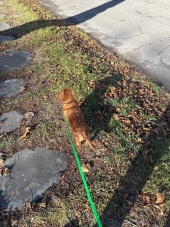I really feel for you in wanting to leave the city. Not long ago, I was living in Seattle and waiting for a land deal to go through. Though not an expert, I have some relatively recent experience.
For land hunting, I like www.themlsonline.com. Questions to ask about parcels of interest include how much of it has been known to flood and how much is within a protective buffer zone of wetlands. I wasted a lot of time considering parcels that had minimal portions of legally usable land.
Another thing to watch out for in cheap parcels are electrical towers. I'm not sure what legalities are involved in grazing beneath them, but I suspect the area immediately around them might not be usable for various reasons. They aren't always mentioned in short parcel descriptions.
I wish I could remember the soil survey site that describes the slopes and percentages of loam, sand, and clay for all of Washington State. I want to say it was affiliated with Thurston County. Though we found out that "well-drained" soil may still puddle to a surprising degree.
As for my story, it comes with a warning. My partner and I came to our homesteading project having done extensive research, but were still repeatedly bitten in the butt for being under-informed about the gnarly details.
We hunted, bought a parcel, moved onto it in a hurry and are still playing catch-up. If I had it to do over again, I would plan on spending a year or more land hunting, a year or more to ensure the purchase goes through, a year or more for septic and well installation. It's possible for it all to happen much more quickly, but I found every step took longer than promised and involved potential irreversible loss. Rushing cost us and the stress was beyond anything I have known.
Long story short, I wish I had approached with a greater respect for the fact that to develop land is to risk discovering you have bought land that will never be legally livable.
For instance:
Plan on >$30,000 for septic and well, though of course it will depend a lot on details. Even though our parcel is plenty wet, the first well drilled was "dry." That means it wasn't pumping a gallon a minute of clear water, which is the minimum for our county. We had to apply for a second drilling permit, pay to fill the unusable hole, and wait with gnawed fingernails to see if the second hole would be any better. Another surprise was the need of a pump house as a place to join the septic, well and electric. This would be the heart of the system and it's placement would effect all designs thereafter. These were designs we had hoped to slowly evolve. Our off-grid intentions complicated everything further, as 12volt pumps are outside the knowledge base of most septic designers and there simply may not be a model that meets code. Our solar set-up had to be ramped up far beyond our realistic needs to accommodate the heavy-duty pump that meets code for septic. One would like to think a person could just buy land, set up humanure
compost and collect rainwater. Nope.
If I were still in Seattle, I'd rent a place with a garden on a good busline to my job. It wouldn't even necessarily be cheaper to be on the outskirts of the city, if you are willing to live with a homeowner who is renting a room. If your employer will pay for the ferry, it is luxurious and cheap to rent on Vashon Island. It's deliciously woodsy and there is a strong community of organic gardeners there. It would not be unheard of to have yard work pay a portion of the rent. In any case, I would buy land, map it, dream, plan and develop all from the comfort of a stable home and life.
I sincerely wish you the best of fortune and success with your five year plan. For the record, I could not be happier with the land we bought and love more each day. I am sure you will find the adventure as ultimately rewarding as I have and hope my story has not been in any way discouraging.
Cheers!
Straylight














 1
1





















































